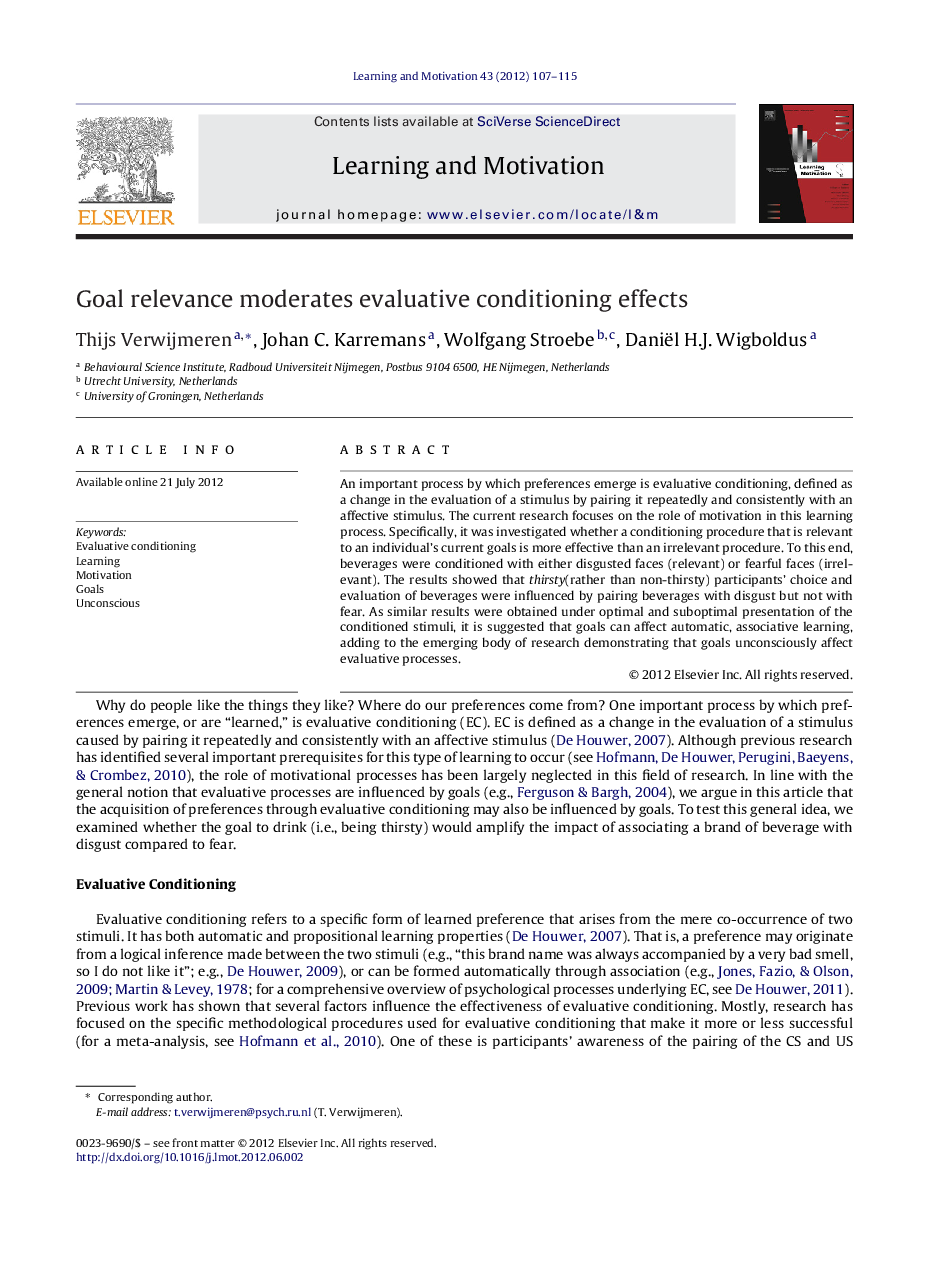| کد مقاله | کد نشریه | سال انتشار | مقاله انگلیسی | نسخه تمام متن |
|---|---|---|---|---|
| 918982 | 919865 | 2012 | 9 صفحه PDF | دانلود رایگان |

An important process by which preferences emerge is evaluative conditioning, defined as a change in the evaluation of a stimulus by pairing it repeatedly and consistently with an affective stimulus. The current research focuses on the role of motivation in this learning process. Specifically, it was investigated whether a conditioning procedure that is relevant to an individual's current goals is more effective than an irrelevant procedure. To this end, beverages were conditioned with either disgusted faces (relevant) or fearful faces (irrelevant). The results showed that thirsty(rather than non-thirsty) participants’ choice and evaluation of beverages were influenced by pairing beverages with disgust but not with fear. As similar results were obtained under optimal and suboptimal presentation of the conditioned stimuli, it is suggested that goals can affect automatic, associative learning, adding to the emerging body of research demonstrating that goals unconsciously affect evaluative processes.
► It was examined how goal relevance influences evaluative conditioning effects.
► Thirsty and non-thirsty people saw beverages coupled either with disgusted (relevant) or fearful (irrelevant) faces.
► Especially thirsty people evaluated beverages conditioned with disgust more negatively than beverages conditioned with fear.
► These results were replicated with supraliminal and subliminal presentation of the conditioned stimulus.
► In conclusion, people learn stronger preferences when the learning procedure is goal relevant.
Journal: Learning and Motivation - Volume 43, Issue 3, August 2012, Pages 107–115